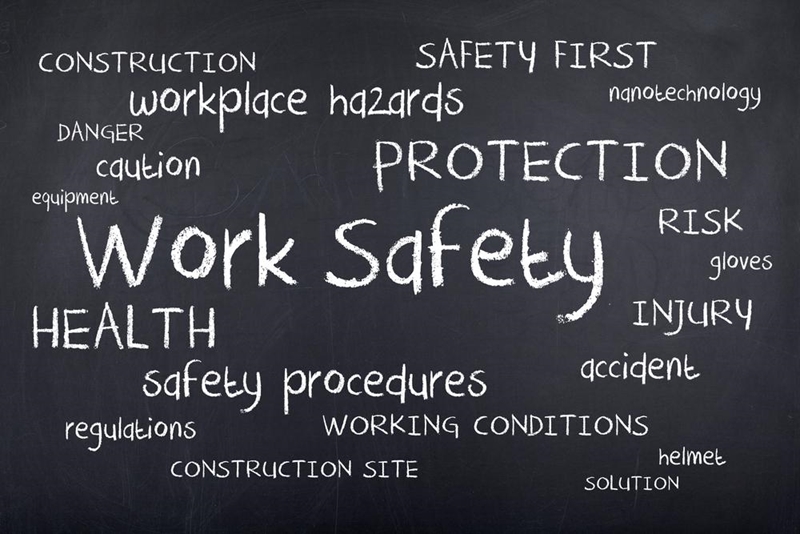View Training Dates for Your City
Filter By
- No scheduled courses - please call us to discuss your requirements
Health and safety are two words people tend to take rather seriously – and understandably so. They play a vital role in your well-being and overall quality of life. When it comes to the business world, health and safety protocol should be at the top of any executive priority list. These processes are just as important as sales and marketing to the successes and failures of any company.
Regardless of industry, the possibility of accidents are always present. Some fields of work present more potential than others but the bottom line is that there need to be distinct protocols in place for workplace health and safety. This can be accomplished by investing in certification courses for your current WHS staff members.
Why is WHS important and some basics you need to know?
- Understanding and being familiar with Codes of Practice
- Safety laws and specifically WHS Law
- The WHS Act
- What is a business or undertaking? How does the PCBU play a part as the business owner?
- How businesses can create safe systems of work and a safe working environment?
- Who plays a role in the safety of workers?
- What States of Australia foes occupational health and safety still play a role?
- Workers compensation and how safety & WHS can reduce premiums?
Need for skilled WHS workers illuminated by high incident rate
The need for skilled WHS professionals is only compounded by the alarming rate of workplace injury across Australia. According to Safe Work Australia’s Key Work Health and Safety Statistics for 2015, 1 in 25 Australians suffered from work-related injuries last year.
These incidents predominantly occurred in the workplace (91 per cent) but notably also took place while travelling on business (4 per cent), when travelling to or from work (2 per cent) and during lunchtime or break activities (2 per cent).
The industries most susceptible to fatalities while on the job were:
- Transport, postal and warehousing
- Agriculture, forestry, and fishing
- Construction
- Manufacturing
These four industries accounted for just over 70 per cent of all workplace fatalities in 2015.
 Health and safety policies are critical to a successful business environment.
Health and safety policies are critical to a successful business environment.The benefits of exceptional WHS
The obvious benefit of outstanding workplace health and safety protocols is the protecting of your employees. When organisations have clearly articulated and well understood WHS processes in place, their staff members are less likely to fall victim to workplace injuries. As a result, your business can be protected from the potential liabilities and costs associated with incidents that occur on-site.
But safety and legal responsibility aren’t the only benefits associated with well-executed WHS processes. They can enhance brand value, improve employee loyalty, decrease business disruptions and promote corporate social responsibility (CSR). Let’s take a closer look at a couple of these benefits:
Enhanced brand value: Branding plays an important role in customer perception. A company that promotes safe workplace conditions is inherently perceived as socially responsible by consumers and potential clientele – a value that increasingly translates to profitability. A study by the Bank of Finland examined the impact of corporate social responsibility on a company’s stock value between 1990-2004.
Organisations that were placed on a list of socially responsible companies saw a market value increase of around 2 per cent. Those who were removed from the list saw their stock value drop by an average of 3 per cent. Companies with exceptional WHS standards and procedures have the potential to not only enhance their brand image but improve profitability as well.
Workplace catastrophes can cause businesses to come to a screeching halt.
Decreased business disruptions: Workplace catastrophes can cause businesses to come to a screeching halt. Whether it be temporarily losing a worker to an injury or having to suspend production processes in light of potential dangers with current protocol, a lack of WHS procedures can cost your business time and money.
Investing in WHS skill advancements
Whether it be preventing costly legal fees or enhancing your overall company image, good WHS policies clearly play a vital role in an organisation’s well-being. As such, it is critical to invest in the development of your health and safety employees.
AlertForce can offer current health and safety professionals with formal qualifications in WHS practises. Our Certificate IV Work Health and Safety course enables employees to become certified by nationally recognised standards.
Our team of dedicated trainers provide a more personal approach to certification by supporting their students via weekly online webinar catch ups. To learn more about how AlertForce can help advance the skill sets of your health and safety staffers, check out the course today!
Useful WHS article links
Latest OHS news
Testimonials
“In over 20 years of training, this was one of the best courses I’ve ever attended.”
“Great! The instructor made it interesting and enjoyable”
” We heard that AlertForce delivers one of the best courses around so the boss decided to send me to Australia from New Zealand.”
“I liked the trainer’s positive outlook and uplifting approach towards completing the long day.”
“Very competent training course. Trainer was very knowledgeable on subject.”
“AlertForce provided an excellent trainer, knowledgeable on the topic and allowed for active questioning.”
“Informative and concise training delivered at the right pace.”
“The Trainer was very engaging”
“Interesting, informative, relevant.”

